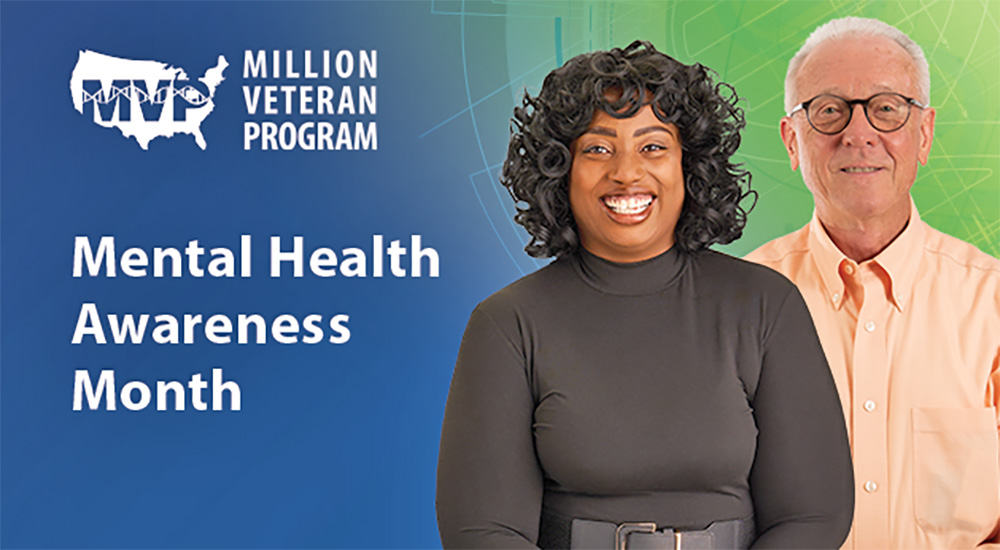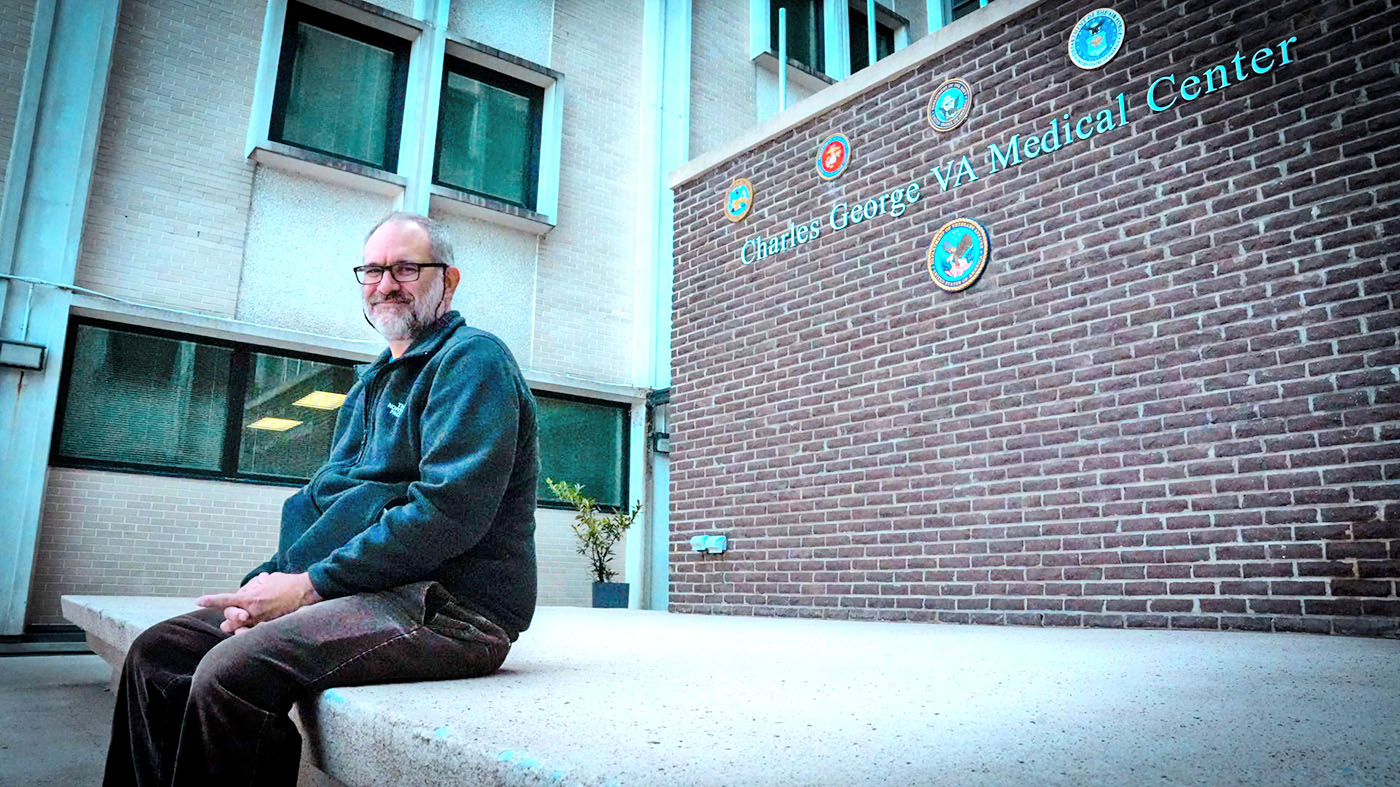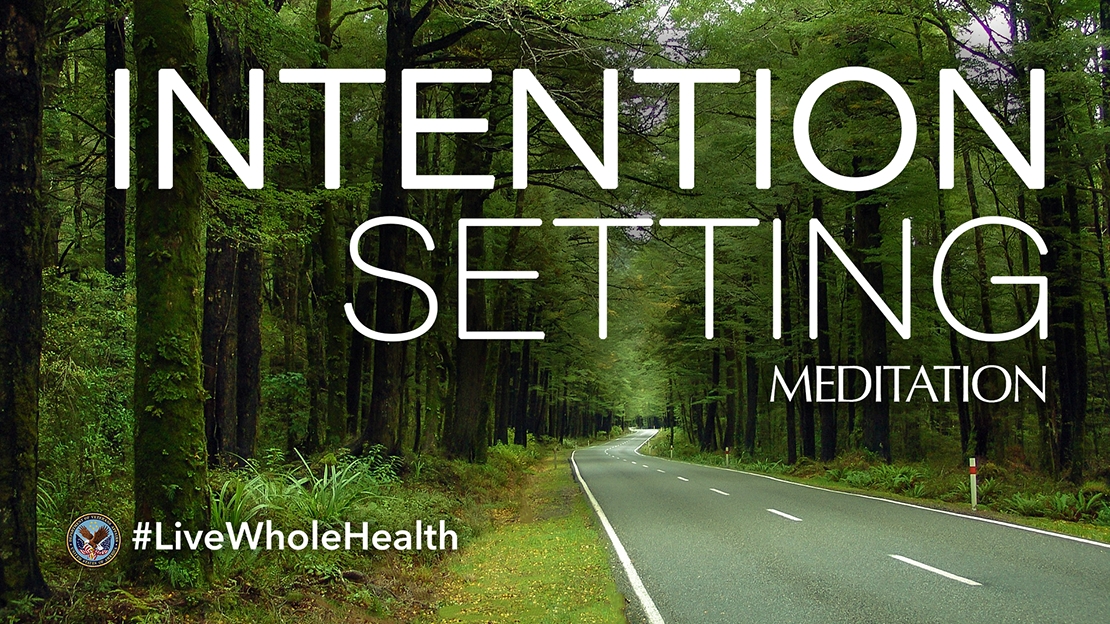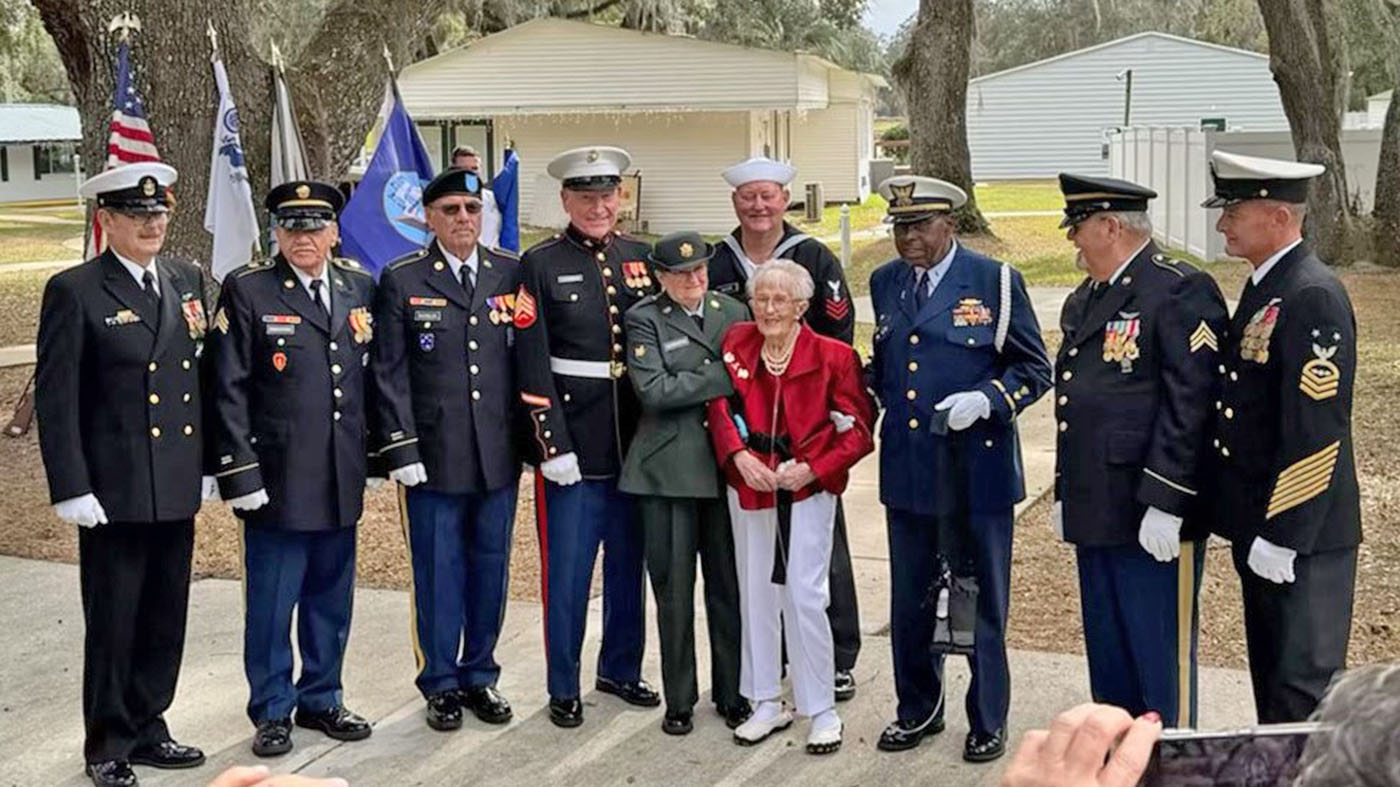One key aspect of mental health care is mental health research. At VA’s Million Veteran Program (MVP), we’re studying how genes, lifestyle, military experiences and exposures interact to affect health, including mental health.
This Mental Health Awareness Month, we’re sharing some of our important research findings that were made possible by the 950,000+ Veterans in MVP.
Posttraumatic Stress Disorder (PTSD)
Of the six million Veterans who received care from VA in 2021, 10% of men and 19% of women were diagnosed with PTSD. MVP’s research into the connections between PTSD and genes may help doctors develop improved PTSD screenings, preventions and treatments for Veterans.
- MVP researchers found genes related to re-experiencing traumatic memories, a common symptom of PTSD. Researchers also found parts of people’s genes related to PTSD that are different between people of African and European ancestry.
- One MVP study confirmed that the likelihood of experiencing PTSD can be inherited, which means a person has a higher chance of carrying genes related to PTSD if one or both of their parents had PTSD.
- Another recent study helped illuminate the biological basis of PTSD which may help to uncover new options for PTSD treatment.
Substance use
Understanding substance use and its effect on mental health is important to improving Veteran health and well-being. More than 20% of Veterans with PTSD also have substance use disorder and substance use disorder is known to affect both physical and mental health.
- MVP researchers found genes linked to opioid use disorder (OUD) that are related to substance use and psychiatric disorders. These genes may impact the brain more than the rest of the body. This means OUD could be a brain disease which may reduce stigma and help find new ways to address the opioid epidemic.
- In another study, researchers discovered new parts of the gene linked to alcohol use disorder which helps researchers understand the biology of alcohol use. This discovery may lead to improved treatments for Veterans experiencing addiction and substance use.
Suicide prevention
Suicide prevention is VA’s top clinical priority. MVP’s research can help doctors better understand potential risk factors for suicide, which may lead to improved screenings and prevention.
- MVP researchers learned that many Veterans who report a suicide attempt also experience severe sleep problems like insomnia.
- Researchers also learned that Veterans who attempted suicide had a harder time absorbing oxytocin than Veterans who did not attempt suicide. Oxytocin is a natural hormone that helps us form feelings of bonding and trust, so a lack of oxytocin may contribute to feelings of social isolation.
If you or someone you know is in crisis, you are not alone. For 24/7 confidential crisis help, dial 988 and press 1.
Anxiety
Nearly one-third of adults will experience a form of anxiety at some point in their lifetime. MVP’s research may help doctors better identify and treat anxiety in Veterans.
- A recent study looked at the genetic structure of anxiety disorders and their relationship to other mental disorders.
- This work provides insight into the biological basis for anxiety and related mental health conditions, which could eventually lead to improved screenings, preventions and treatments.
Join over 950,000 Veterans in VA’s Million Veteran Program
As Veterans continue to join MVP, researchers have access to more diverse information to help improve mental health care at VA. In addition to mental health, MVP is studying dozens of health conditions that affect Veterans, including:
- Cancer
- Diabetes
- Heart health
- Tinnitus
- And more.
Join the Million Veteran program today at the MVP website or call 866-441-6075 to make an appointment at a participating VA facility. You don’t need to receive your care at VA to participate.
To read more stories on the Million Veteran Program, visit VA News and Information.
Topics in this story
Link Disclaimer
This page includes links to other websites outside our control and jurisdiction. VA is not responsible for the privacy practices or the content of non-VA Web sites. We encourage you to review the privacy policy or terms and conditions of those sites to fully understand what information is collected and how it is used.
More Stories
A VA biomedical technician at Western North Carolina VA used innovation to fix a problem of Veteran accessibility.
New Year, new intentions! As we welcome 2025, pair your goals with meaningful intentions with this 5-minute meditation for this week's #LiveWholeHealth practice.
Dr. Loretta Ford is known for her groundbreaking work in advancing the role of nurse practitioners.







{I was in Vietnam for six tours.
I have {PTSD} .
J. Wall
This is a great program. It’s too bad, however, that we can’t get any feedback on what is found with our DNA. It’s as though we’re just research subjects and not people.
“reduce” stigma???
Do you not foresee the day when you will reject it?